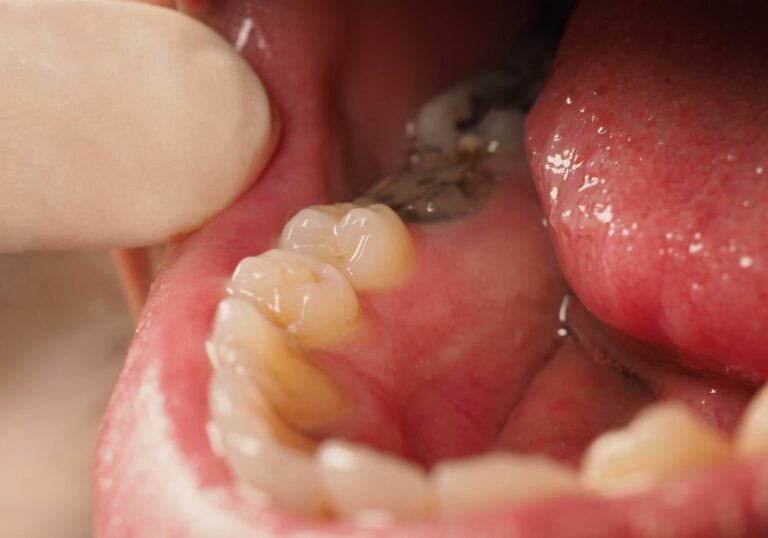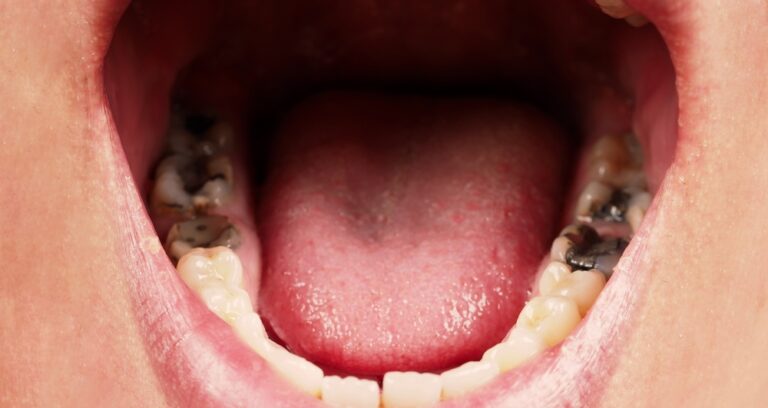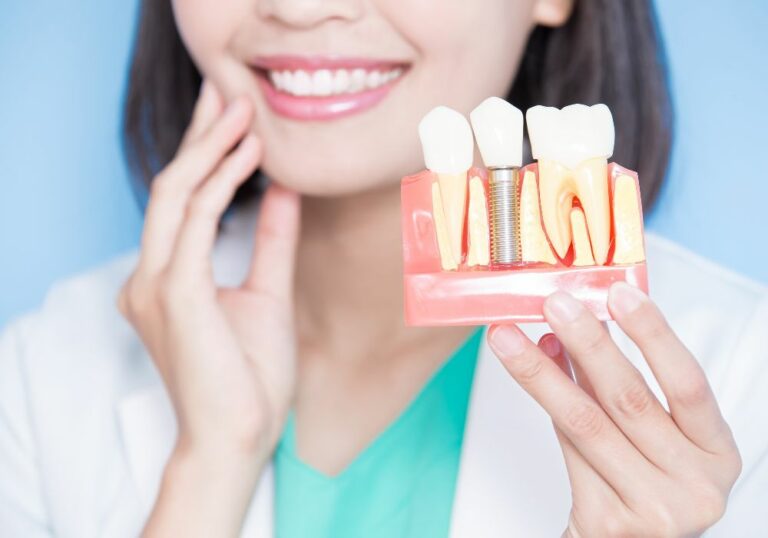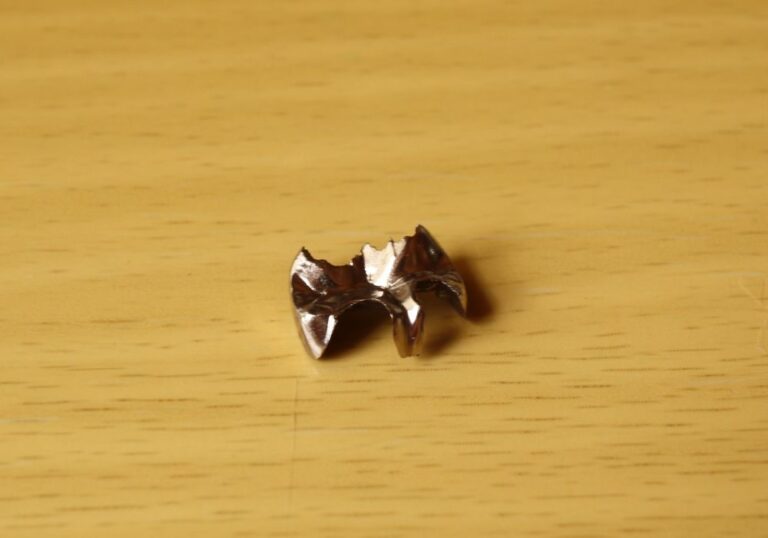It’s common for parents to be concerned if their toddler hits 18 months old with only 2 teeth erupted. While every baby teethes at their own pace, this delayed dental development often raises questions. Are just 2 teeth at 18 months normal? What might cause slow teething? And when should you seek dental advice?
Tooth eruption ranges in toddlers
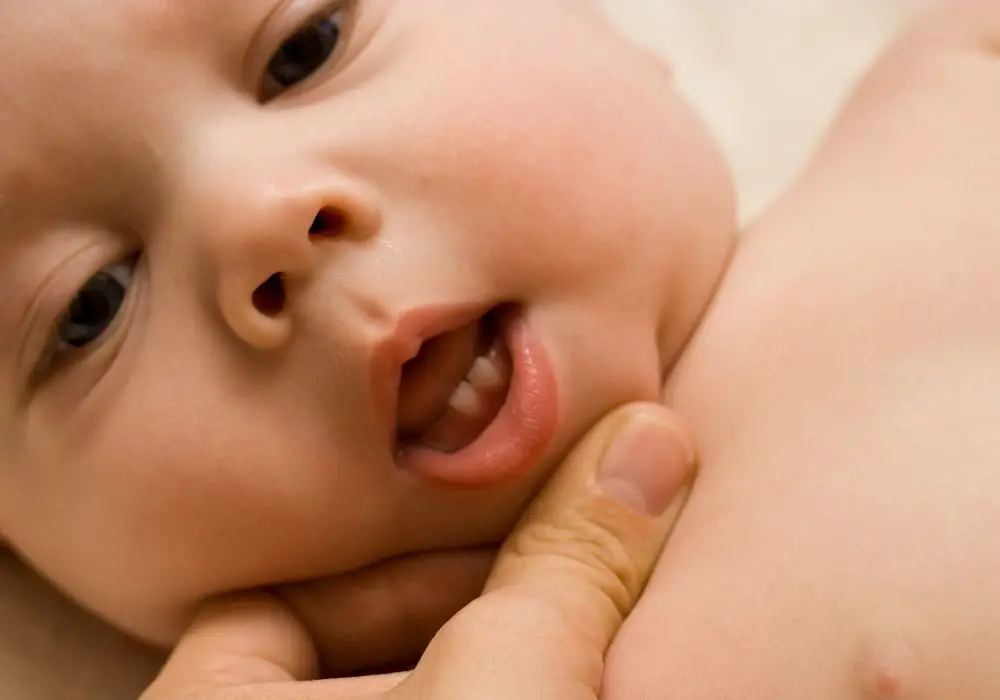
The eruption timeline for baby teeth is quite variable. According to the American Dental Association, a typical timeline is:
- First tooth: between 6-12 months
- All 20 primary teeth: between 2.5-3 years
However, research in the Journal of the American Dental Association found a wide range of normal:
- First tooth erupted between 3-15 months
- Full set of 20 baby teeth emerged between 11-33 months
So while some babies sprout several teeth by their first birthday, it’s still well within acceptable limits to only have 2 teeth at 18 months.
Contributing factors for delayed teething
If your toddler is nearing the 18th month mark with hardly any pearly whites, there are a few possible reasons:
Genetic tendencies
Teething patterns have a strong genetic link. If you or your partner were late teether as babies, your child may follow the same schedule. Inherited traits like larger jaw size and increased spacing between teeth allow more room for delayed growth.
Low birth weight
Preterm and low birth weight infants are more likely to experience delayed teeth eruption. According to a 2020 study in Pediatric Dentistry, very low birth weight babies averaged 2.7 months delayed emergence of the first tooth compared to normal weight infants. Their teething delay extended across the eruption of the first 4 teeth.
Nutrient deficiencies
Lacking key vitamins and minerals can contribute to late teething. Iron, calcium, vitamin D, and vitamin A are especially crucial for healthy dental development. If your toddler’s diet is deficient due to food intolerances, digestive issues, or picky eating, discuss supplement options with your pediatrician.
Chronic diseases/disorders
Various chronic medical conditions are linked to late teething in babies. For example, infants with congenital hypothyroidism often don’t get teeth until after age 1. Other disorders like Down syndrome, cleft lip/palate, and congenital heart disease are also associated with delayed dental development.
Use of pacifiers or bottles
Prolonged pacifier use and bottle feeding may negatively impact teething, especially when used frequently at naptime and bedtime. The pressure against the gums can impede the stimulation needed for baby teeth to emerge properly. However, this effect is usually minimal and temporary.
Hereditary enamel defects
In some cases, inherited defects like enamel hypoplasia result in delayed eruption of fragile, discolored teeth prone to early decay. Seek medical advice if your toddler’s teeth appear weak or translucent. Early intervention improves outcomes.
Signs it’s time to see a pediatric dentist
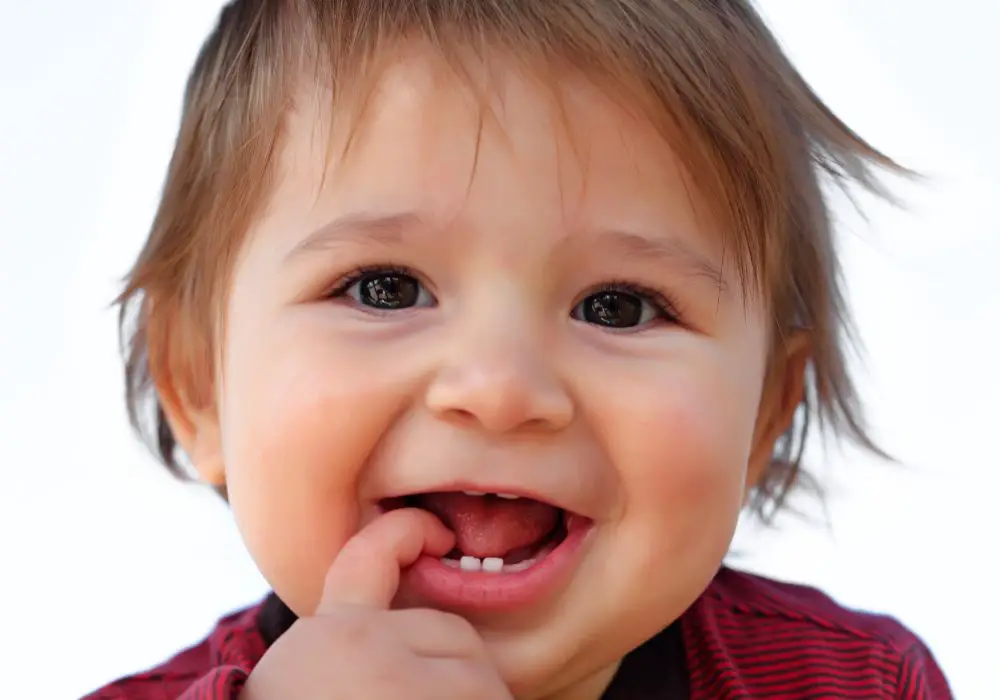
While 2 teeth at 18 months is still in the normal range, raise any concerns with your child’s doctor. The American Academy of Pediatrics suggests a first dental visit between ages 1-2, or sooner if dental problems are suspected.
See a pediatric dentist right away if your 18 month old has:
- No teeth at all
- Loose teeth, pain, or swelling
- Injuries, spots, or discoloration
- Abnormally small or thin teeth
- Oral Thrush or signs of infection
- Enamel defects
A dental evaluation can identify progression issues like missing teeth, jaw misalignment, or orthodontic problems to monitor closely. Early treatment prevents extensive decay and promotes healthy dental habits.
Supporting your late teether
While genetics largely determines eruption timing, here are some ways to support healthy teeth development:
- Massage gums gently to stimulate tissue growth
- Ensure diet includes iron, calcium and vitamins A, D
- Avoid juice or milk in bottles during bedtime
- Start cleaning new teeth with fluoride toothpaste
- Use a cold teether to massage gums for relief
- Limit pacifier use to naptime or bedtime
- Ask your pediatrician about safe pain relief options
Monitor for signs of teething pain like excessive drooling, chewing, and crankiness. With patience and prompt attention to emerging dental issues, late teethers eventually catch up with their peers.
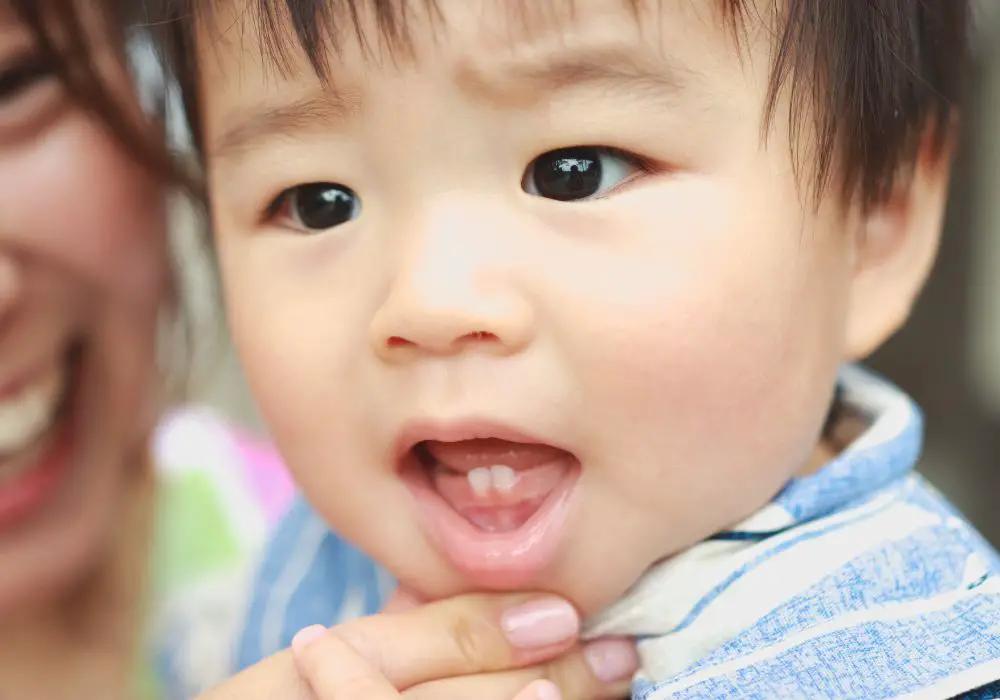
Frequently Asked Questions
Q: At what point should I worry my 18 month old has no teeth at all?
A: The first tooth usually erupts between 6-12 months. If your baby has no teeth by 12-14 months, consult a pediatric dentist to evaluate for dental development issues. Most infants have at least 1-2 teeth by age 1.
Q: Can teething gels help my late teether?
A: The FDA urges parents to avoid benzocaine teething gels as they pose serious health risks to infants and toddlers. Instead, massage gums with clean fingers, use chilled (not frozen) teething rings, or ask your pediatrician about safe over-the-counter pain relievers appropriate for your child’s age.
Q: Should my toddler see a dentist or pediatrician about delayed teething?
A: Your pediatrician should be the first stop to discuss concerns about late teething. They can check for health issues contributing to delays and refer you to a pediatric dentist if dental problems are suspected. The dentist can then monitor eruption patterns and intervene early if needed.
Q: Could my 18 month old’s lack of teeth indicate an inherited disorder?
A: Very delayed or missing teeth may indicate a congenital disorder like cleidocranial dysplasia or ectodermal dysplasia in rare cases. However, the most likely reason a toddler has only 2 teeth at 18 months is simply delayed maturation. Check with your pediatrician and pediatric dentist first before worrying about inherited conditions.
Q: What should I do if my 18 month old’s teeth appear weak/discolored?
A: Unusually thin, small, translucent or discolored teeth may signal enamel defects. See a pediatric dentist right away, as weakened enamel is prone to rapid decay. Early intervention with fluoride, sealants, hygiene instructions, and monitoring helps prevent extensive damage.

